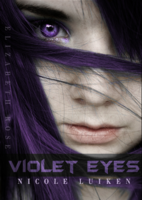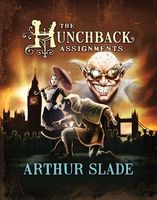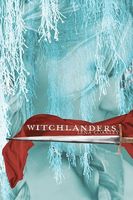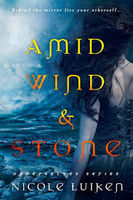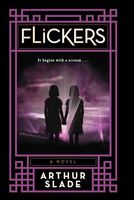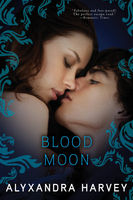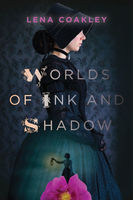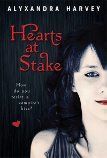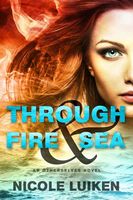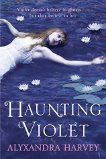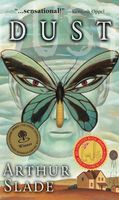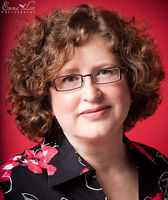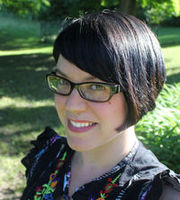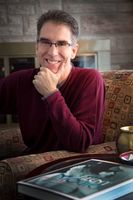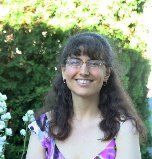Kid Lit Can, with Susan Hughes: The Magic, The Wonder - Chatting with YA Fantasy Authors (Part 2)
By Susan Hughes & Submitted by Kevin
Today, I continue my conversation about writing fantasy with these four amazingly talented and experienced YA authors: Lena Coakley, Alyxander Harvey, Nicole Luiken, and Arthur Slade. Please feel free to register or log in, and add your own observations and comments below!
Susan Hughes:
Thanks again to you all for agreeing to chat with me!
And now, Nicole … You wrote, “I love me a cool magic system. What do I mean by ‘system’? Basically, the magical laws that set out how the magic works in that particular author’s world. Does magic have to have rules? No. … Some argue that giving magic rules takes away from its essential “magic” and that magic should not be treated like a science. Ultimately, I don’t think it matters whether or not magic has rules so long as it comes with a price of some kind.”
This is fascinating. Is there anything else you’d like to add about your view on magic systems?
Nicole Luiken:
Without a price, the author runs the real danger of making things too easy on their characters. Something bad is about to happen? Teleport yourself away. Problem solved. Sure the hero can stick around and fight—but if he always has the option of that teleport, then he’s never in real danger, and readers will be less invested in the scene. Think about the Lord of the Rings. Frodo’s ring makes him in invisible, but it also sends out a clarion call to Sauron—and using it imperils his very soul.
Susan Hughes:
Alyx, Lena, Art, do your fantasy novels also have magic systems? What are your views on Nicole’s comments?
Alyxandra Harvey:
I use magic a fair bit and my first rule, no matter the book, is that magic has to make life more complicated for my characters, not easier. After that, it depends on the story.
But, yes, it always demands a price: physical energy, secrets, or even something silly like sneezing every time you cast a spell. We don’t understand everything in this world, so why would anyone in a book? Maybe magic is a mystery, maybe it’s a set of mathematical equations. As long as it follows an internal logic, I say make it an adventure and a playground!
Lena Coakley:
The big pitfall with writing about magic is that it can’t be allowed to solve a main character’s plot problems. It can’t become another form of deus ex machina to save the day.
I’m fascinated by what Nicole says, but I disagree somewhat. I think magic can be mysterious; it can be quixotic; it can seem inexplicable to the characters in a novel; but I think it has to obey certain rules, even if only the author knows what they are.
Your CanLit News
Subscribe to Open Book’s newsletter to get local book events, literary content, writing tips, and more in your inbox
Arthur Slade:
Technically the books I’m writing have fantasy elements that are “appended” to a real world. So it’s not so much a system as a magical idea that lives and breathes along with the natural laws of science. Modo’s aforementioned ability to change shape is one of those magical ideas (though it is explained in the book as an offshoot of evolution).
I am working on a fantasy novel at this moment and I agree that magic should not have scientific rules. That would limit it. But it should be indicated generally the limit of the magic. A character who can do anything with magic would be about as boring as…well…Superman (and he at least has kryptonite). And it does make sense that magic comes with a price. That adds drama. And drama is such a key element to storytelling.
____________________________________________________________________________________________________________________
Susan:
Lena, in your blog, you wrote, “It wasn’t until I learned to see scenes on a micro level—as needing goals, obstacles and turning points of their own—that I became a publishable writer.” Can you please talk more about this writing strategy?
Lena:
As new writers, we hear a lot about plot structure—inciting incident, rising action, reversals, climaxes, etc.—and we learn to craft our novels as a whole, but it took me a long time to figure out that individual scenes also need structure. They might not need all the elements I mentioned, but they will usually have a turning point, a point of change. Dwight Swain writes about scene structure very well in his book, Techniques of the Selling Writer.
Susan:
And Alyx, Nicole, and Arthur? Has this been an important writing strategy for you as well?
Alyxandra:
Yes, absolutely this is important! I think my personal turning point had more to do with editing though. I used to hate it. Now, I actually enjoy the process of the book getting better. It’s a skill set, like any other. Stepping away from your book for a month or so first is also vital. And then ferreting out the bits you may have glossed that actually mean more than you thought. It’s like a scavenger hunt. And I had to learn that in my quest not to be too obvious, I can be way too subtle.
Nicole:
Editing each scene as a unit is a very important part of my revision process. I give each scene three editing passes. Why three? I can read just about any scene once and not really notice its flaws, but if I’d rather wash dishes than go over the scene a third time that’s a giant warning sign that there is something seriously wrong and I need to fix it.
Arthur:
I think an important writing strategy can sometimes be as simple as: Is there anything that is truly interesting on this page? Will
the reader need to keep reading?
And Lena Coakley is right. What keeps the reader reading is that they want a micro-question answered along with the big questions asked by the novel. Will X be able to win the argument? Will Y actually cast that spell that summons the homework demon? When writing for younger readers one might even want to be sure there’s more than one interesting thing per page.
____________________________________________________________________________________________________________________
Susan:
What are one or two of your favourite sentences from one of your own books – and why?
Alyxandra:
“With her long dark hair and green eyes, she was pretty as a doll. You know, the kind of doll that came to life at night to kill monsters.” This is from my novel Blood Moon and it’s one of my favourites because it’s pretty much what most of my books are about.
Nicole:
“I hated Michael Vallant for nine years before I finally met him.” This is the first line of Violet Eyes, my most successful novel. I have a special fondness for the characters Angel and Michael—so much so that I’ve written three sequels!
Lena:
I’m not sure I can pick out a favourite sentence, but my favourite scene in Worlds of Ink and Shadow is the one where Emily goes to Gondal, the fantasy world that she created. I like it because as a writer I got to pull out all the stops—there’s romance, magical realism, a thunderstorm, a betrayal—I like to think I captured a little bit of Emily Brontë’s wildness in that scene.
Arthur:
There’s a sentence from Dust that I’m particularly fond of. It appears just after a young boy has stepped on a spider and looks at what’s left: “Its insides were outside now.” That’s actually a rather gross sentence. But what I like about it is that the sentence works with the reader’s mind. The reader has to imagine what the “insides” look like now. I don’t spend three sentences explaining the grossness. There’s just a very simple description that kicks off a little flowering of imagery in the reader’s head. Writing, in many ways, is a game that is being played between the text and the reader’s mind.
____________________________________________________________________________________________________________________
Susan:
Share with us a line of two of direct speech that you’d love to hear a reader say after finishing reading one of your fantasy books!
Lena:
Teen readers are the best. For Witchlanders, my favourite fan email had the heading: “Epic Win!” with about fifty exclamation points. For World of Ink and Shadow I’d love to hear: “I was inspired to read the Brontës after reading your book.”
Alyxandra:
“I didn’t want that to end!” and “I can’t believe she did that!”
Nicole:
“I couldn’t put it down” are the sweetest words to my ears.
Arthur:
“This book was amazing and I want to buy all of his other books and convince ten thousand people to do the same.”
____________________________________________________________________________________________________________________
Susan:
What are a few of your all-time favorite books?
Alyxandra:
I am evangelical about Terri Windling’s The Wood Wife and Laini Taylor’s Daughter of Smoke and Bone. Also, Fangirl by Rainbow Rowell.
Lena:
Ficciones by Jorge Luis Borges, Feed by MT Anderson, David Copperfield by Charles Dickens, Cuckoo Song by Frances Hardinge, A Face Like Glass by Frances Hardinge, A Wizard of Earthsea by Ursula LeGuin, The Left Hand of Darkness by Ursula LeGuin, The Golden Compass by Philip Pullman, Sabriel by Garth Nix, Wuthering Heights by Emily Brontë, The Lion, the Witch and the Wardrobe by C.S. Lewis…. I could go on and on.
Nicole:
My childhood favourites were: The Silver Chair by C.S. Lewis, Ozma of Oz by L. Frank Baum, and Diamond in the Window by Jane Langton. I read and reread those dozens of times.
As an adult, I have favourite authors more than I do specific volumes. (It’s too hard to choose!) My favourite authors include: Wen Spencer, Patricia Briggs, Jim Butcher, Ilona Andrews, Suzanne Brockmann, Nalini Singh, and Loretta Chase.
Arthur:
Something Wicked This Way Comes by Ray Bradbury, Tigana by Guy Gavriel Kay, I Am Legend by Richard Matheson, and Airborn by Kenneth Oppel.
____________________________________________________________________________________________________________________
Susan:
What would you like to tell us about your latest novel?
Alyxandra:
Love Me, Love Me Not is about Ana and her crazy family. They can turn into swans—but just once she’d like them to turn into responsible adults. It’s about magic and family feuds and kissing.
Nicole:
My latest YA fantasy series is called Otherselves. Book 2, Amid Wind and Stone, is the latest release and book 3 is forthcoming. There is the one True World and then there are the four Mirror Worlds, which are slightly distorted copies. Each world—Fire, Water, Air and Stone—has its own elemental magic as well as the mirror magic that joins them. Rare people known as Callers have otherselves—twins of themselves—on all the worlds.
Lena:
Worlds of Ink and Shadow is a portal fantasy about the young Brontë siblings and the imaginary countries they wrote about in childhood. I did lots of research for this book and even got to study in the Brontë parsonage museum in Haworth, England.
Arthur:
My latest is Flickers. It’s the story of twin orphan girls from Alberta who end up living in 1920’s Hollywood, under the watch of a brilliant and ruthless film producer. One twin becomes a famous star, the other a recluse on the estate. The producer is planning to make a horror film that is actually so perfect (and frightening) that it summons something from another dimension.
____________________________________________________________________________________________________________________
Susan:
Any final thoughts you’d like to share?
Alyxandra:
Thank you for this! I love questions about writing—it always helps me realize what I think and it inspires me at the same time. Writing can be lonely—it’s good to find that tribe that loves the same things you do.
Arthur:
Writing is a journey. Even though I’ve published eighteen novels, I’ve learned that I have to keep on learning and wrestling with the prose. There are many “tricks” to learn but the most consistent “trick” of all is to just do the writing. The rest will fall into place.
Lena:
Thanks for having me on the blog, Susan!
____________________________________________________________________________________________________________________
Lena Coakley is the Globe & Mail bestselling author of Worlds of Ink and Shadow, a YA historical fantasy about the young Brontë siblings. Her previous novel, Witchlanders, won the SCBWI Crystal Kite award and was a White Pine Award honouree. She lives in Toronto and her website is http://lenacoakley.com/.
Alyxandra Harvey is the author of several YA fantasy novels. She lives in a stone Victorian house in Ontario, Canada with a few resident ghosts, several dogs, and her husband. She likes caramel lattes, tattoos, and books. Alyx’s website is http://alyxandraharvey.com.
Arthur Slade is the author of eighteen novels for younger readers, including his latest, Flickers. He writes in the mythical city of Saskatoon, Saskatchewan, Canada. His website is http://www.arthurslade.com.
Nicole Luiken is the author of ten published books for young adults. She lives with her family in Edmonton, AB. It is physically impossible for her to go more than three days in a row without writing. Nicole’s website is http://www.nicoleluiken.com.
The views expressed by Open Book columnists are those held by the authors and do not necessarily reflect the views of Open Book.
Susan Hughes is an award-winning author of children's books — both fiction and non-fiction — including The Island Horse, Off to Class, Case Closed?, No Girls Allowed and Earth to Audrey. She is also an editor, journalist and manuscript evaluator. Susan lives in Toronto. Visit her website, www.susanhughes.ca.
